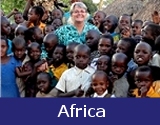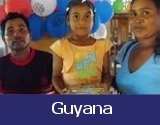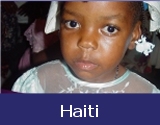
|
Contact UsUnited Caribbean TrustUnited Caribbean relief workUnited through sportsUnited through music & danceUnited through schoolsRelief Agencies |
home >> caribbean
>> grenada
>> carriacou
CARRIACOU September 20, 2004
“The Present Situation in Grenada & the Way Forward’’ On Tuesday September 7, 2004, Grenada was struck by what is undoubtedly the worst humanitarian crisis not only in its history, but also in that of the entire English-speaking Caribbean. For approximately nine (9) hours, Hurricane Ivan – now confirmed to be the sixth most devastating hurricane in recorded human history – unleashed its full fury on this tiny vulnerable nation, reducing it to a pile of rubble and its 100,000 inhabitants almost to a state of temporary vagrancy. The full social and economic impact of this monumental catastrophe is yet to be assessed. It is known that at least 35 people lost their lives; it is estimated that as many 60,000 people may have been rendered homeless and permanently deprived of their personal belongings, including TV, radio, clothing, food supplies and medicine. It is believed that as much as 90 per cent of the physical infrastructure of the country (including roads, bridges, buildings and the national stadium) has been destroyed. Much of the country’s institutions including the Parliament, Courts, churches, Prime Minister’s residence, Governor General’s residence and the prison, have been partially or completely destroyed. Most businesses in the St. George’s area have either been partially or wholly diminished, with destruction of physical plant and depletion of equipment, technical and material stocks and inventory. All of our agricultural crops have been destroyed, including the important export crops of nutmeg and mace, thus threatening our food security. All basic utilities, including electricity, water and telephone, have been indefinitely interrupted and it is anticipated that it may be months before these services are fully restored. Preliminary estimates put the property damage at almost US$2 billion. This tragedy was compounded by widespread looting, which was not helped by the absence of adequate security arrangements. The social and economic implications of this tragedy – whether viewed in the short, medium or long term – are truly staggering. At this moment our people face shortages of food, clothing, shelter, medicines and other basic emergency items. While the regional and international communities have been exceedingly prompt, generous and selfless with their humanitarian assistance, we have not been able to develop and implement an efficient system for the receipt, sorting and distribution of these items to the population in a timely, fair and equitable manner. It is necessary to urgently resolve this problem if we are to retain the goodwill of the world community and get our people to commence the long and difficult road of reconstruction. The absence of immediate shelter for significant numbers of our population remains perhaps the single most pressing problem facing us today. We must quickly draw upon the goodwill of our Venezuelan friends and the US army corps of engineers to assist us with tents, military kitchens, shelter managers, counsellors and other support personnel. The health and sanitation situation must be immediately addressed. In fact all steps must be taken to restore the water supply, collect and properly dispose of the mountain of rubble and waste, and general restore health practices so as to minimize and resist outbreak of diseases. In addition, it is vital that constant contact be maintained and information passed on to the population by PA systems and other means, so as to allay their anxieties, erase their doubts and queries and generally relieve the stress of coping with this crisis. In the short to medium terms, we face the stark reality that our primary sources of foreign exchange – Agriculture and Tourism – have been extinguished. Manufacturing exports will be diminished. Our foreign exchange earning capacity will be significantly reduced. At the same time the demands for imports, especially building material, will be significantly increased. We must resuscitate agriculture and rapidly rebuild the tourism plant. At the same time we must rapidly rebuild the country’s infrastructure, restore our shattered institutions and urgently rebuild our housing stock. The task of restoring Grenada to its stage of development immediately prior to this destructive Hurricane will take at least 12 to 15 years, even with the fullest mobilization of all of our human and material resources, our best management capabilities and the most generous assistance from the international community. In this era of globalization and international competition the challenges facing small states are monumental enough. This tragedy has now placed us at the back of the line. Nevertheless with strong, creative, mature and effective leadership we can find opportunities in this tragedy and restore the pride and prominence of our country. But we must act quickly, collectively and decisively. It must by now be clear to all Grenadians that no one political organization in our country can effectively manage us out of this crisis and that the collective will, energies and talents of all Grenadians will be required. The Grenadian people have already been expressing their strong desire for the politicians to put politics aside and get on with the business of rebuilding the country. We in the NDC recognize and accept that responsibility and we believe that the ruling New National Party does likewise. That is why we are today calling on the Governor General and the Prime Minister to immediately establish a Government of National Unity or National Unity Government (NUG) for a period of one year in the first instance to deal with the immediate and pressing problems facing the country and begin the work of rebuilding. We envisage that the NUG will have the following characteristics and we are proposing that they be adopted as the way forward. 1. There shall be an expanded but re-configured cabinet made up of the following persons: a. The15 MPS 2. The representatives of the Religious Community, the Private Sector, the NGO Community, Labour and the Farming Communities shall be chosen on the advice/recommendation of the respective organizations/communities. 3. The following be the pivotal ministries in the Administration 4. A system of “twinning’’ takes place with a Minister of state/Deputy Minister assigned to each ministry. 5. Prime Minister shall be Prime Minster and Chairman of the NUG.
7. The expanded and configured Cabinet shall be responsible for the development of all Government policy during the tenure of the NUG. 8. There shall also be immediately established a National Reconstruction Agency (NRA) that shall be the principal agency responsible for the implementation/execution of NUG Policy. 9. The NRA will be headed by a Director who shall be answerable to the expanded /reconfigured Cabinet and must have strong managerial capability. The Director may be a Grenadian or CARICOM National who can be recruited with the help of CARICOM. There shall also be a Deputy Director of the NRA who shall also have strong managerial capability. 10. The NRA will be organized into Commissions, including the following:
11. Each Commission in the NRA shall be headed by persons with strong technical and/or managerial capability and shall be driven by technical and managerial criteria and considerations. The Head of each division shall be answerable to the Director. 12. In the execution of its mandate the NRA shall, in consultation with the relevant minister, be entitled to issue directives to Ministry officials and recruit ministry personnel for specific short-term tasks and assignments.
|
| Copyright © 2022 www.UnitedCaribbean.com. All rights reserved. Disclaimer Click to Contact us |





